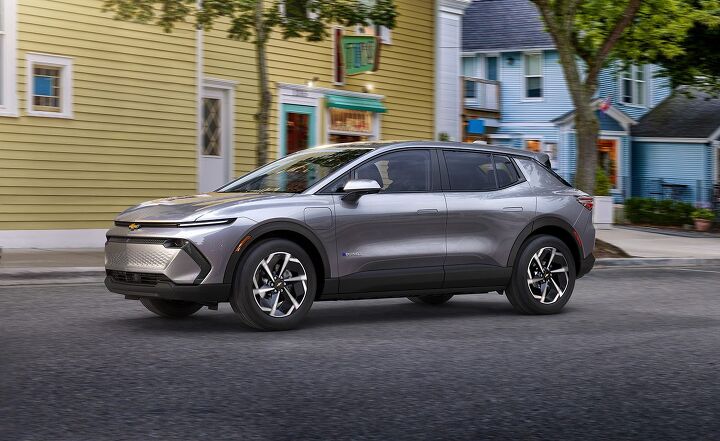EVs Aren't Selling So GM Will Use Batteries To Power AI Data Centers

With the EV sales race cooling, General Motors is finding a new use for its battery technology—and it doesn’t involve building cars.
Key Points
- Partnering with Redwood Materials, the automaker will supply new and repurposed EV batteries to power microgrids for AI data centers.
- Plants capable of producing up to 1 million EV batteries annually will now also feed the fast-growing stationary energy storage market.
- Initial deployment powers Crusoe’s modular AI data center with a system capable of delivering 12 megawatts instantly and storing 63 megawatt-hours.
It's no secret that demand for electric vehicles is moving much slower than anticipated, so GM is partnering with Redwood Materials to supply battery energy storage systems for artificial intelligence data centers, a sector with an insatiable appetite for power.
The move allows the automaker to ramp up its existing battery production capacity—much of which is currently underutilized. The partnership will use both new and second-life Ultium batteries to create localized “microgrids” capable of supplying clean, reliable electricity. AI data centers are on track to triple their share of national electricity usage from 4.4% in 2023 to 12% by 2028.
GM’s Ultium Cell plants in Tennessee and Ohio, along with a joint venture with Samsung in Indiana, could produce enough batteries to power up to one million EVs annually. But so far in 2025, GM has sold just 78,000 electric vehicles — 105,000 when including Honda-built models.
Rather than let that capacity wither, the automaker will deploy both new and repurposed EV batteries for stationary energy storage, starting with a Nevada microgrid powering Crusoe’s modular AI data center. The system can deliver 12 megawatts instantly and store up to 63 megawatt-hours of energy.
The market for grid-scale batteries and backup power isn’t just expanding, it’s becoming essential infrastructure,” said Kurt Kelty, VP of batteries, propulsion, and sustainability at GM. “Electricity demand is climbing, and it’s only going to accelerate. To meet that challenge, the U.S. needs energy storage solutions that can be deployed quickly, economically, and made right here at home. GM batteries can play an integral role. We’re not just making better cars - we’re shaping the future of energy resilience.”
Some advocates say using batteries — even second-life packs from retired EVs — could help make AI operations cleaner, though purpose-built storage batteries may offer better long-term performance. With global demand for stationary energy storage projected to reach 297 GWh by 2025, GM’s creative pivot to a non-traditional revenue stream should prove attractive to the stock market.
Become an AutoGuide insider. Get the latest from the automotive world first by subscribing to our newsletter here.

An experienced automotive storyteller and accomplished photographer known for engaging and insightful content. Michael also brings a wealth of technical knowledge—he was part of the Ford GT program at Multimatic, oversaw a fleet of Audi TCR race cars, ziptied Lamborghini Super Trofeo cars back together, been over the wall during the Rolex 24, and worked in the intense world of IndyCar.
More by Michael Accardi




































Comments
Join the conversation
how will this make any sense
The reason Electric Vehicles/Batteries are not selling is purely the cost of the batteries .
So how is AI going to get PAID if they use More Expensive Batteries to power their computers rather than just regular ole cheap gas/coal/uranium electricity?
God bless Gm for being able to sell them that "special" product.
Maybe they can sell teh Brooklyn bridge to New York too.
The recycled batteries are from POS EVs that weren't worth recycling